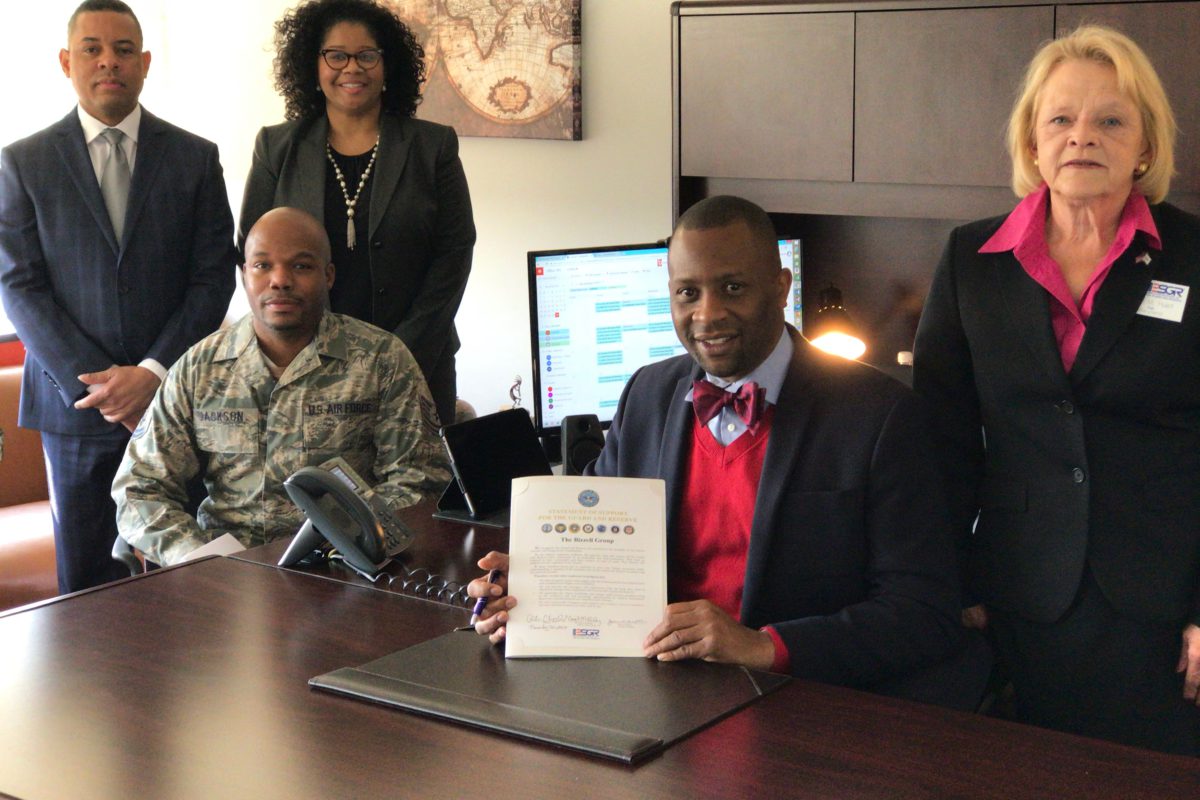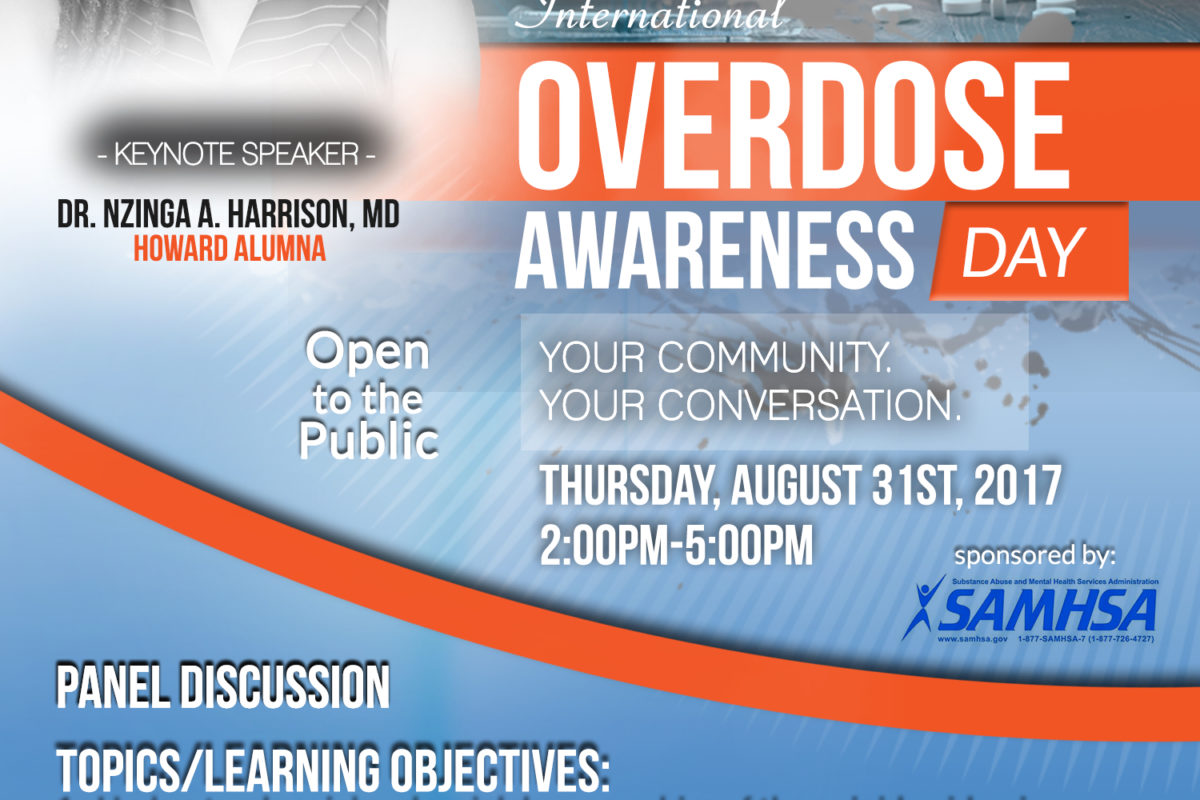Bizzell Supports Our Military
On November 30, 2017, Dr. Anton Bizzell, CEO and President of The Bizzell Group (Bizzell) and senior Bizzell staff met with Jean Hulet, the Maryland State Chair of the Employer Support of the Guard and Reserve Program (ESGR), to sign a Statement of Support with ESGR. By signing ESGR’s Statement of Support, Bizzell solidifies its deep commitment as an advocate and supportive employer for our National Guard and Reserve employees. Bizzell is proud to support our military by providing employment and employment opportunities for those who serve in the National Guard and Reserves and Veterans.
ESGR was started by the Department of Defense in the early 1970s to foster cooperation and understanding between employers and Service members. ESGR has more than 3,600 trained volunteers in communities throughout the United States, the District of Columbia, Puerto Rico, Guam and the U.S. Virgin Islands. ESGR educates employers about the Reserve component of the military, assists with resolving conflicts that arise from an employee’s Reserve status and commitments, and recognizes employers with policies that support and encourage participation in the Reserves.
Bizzell sponsored a community outreach Veterans’ appreciation luncheon and toiletry donation event on Friday, November 7th in Atlanta GA, in collaboration with National Contract Management Association (NCMA) Atlanta Chapter. The recipient organization, Quest Community Development Organization (QCDO), promotes a best in class, diverse housing model that encourages collaboration and positive community change. QCDO is committed to enhancing and inspiring personal, professional, and team growth through unique experiences, continued education, and strong work ethic.
QCDO provides housing programs and supportive services that are targeted toward the chronically homeless population of men, women and Veterans with a history of mental illness and/or substance addiction directly affecting the human health and welfare of individuals.
Bizzell also supports the military through our Department of Defense (DoD) contract, which focuses on suicide prevention, intervention, and posvention efforts for Service members and their families. We believe that it is our sacred duty to ensure the health and well-being of our brave Service members. We must provide proper care for those who sacrifice so much for the freedom we enjoy. Through the contract, assist the DoD with the development and implementation of a suicide prevention, outreach, and communication plan for Service members, their families, and DoD Civilians.




